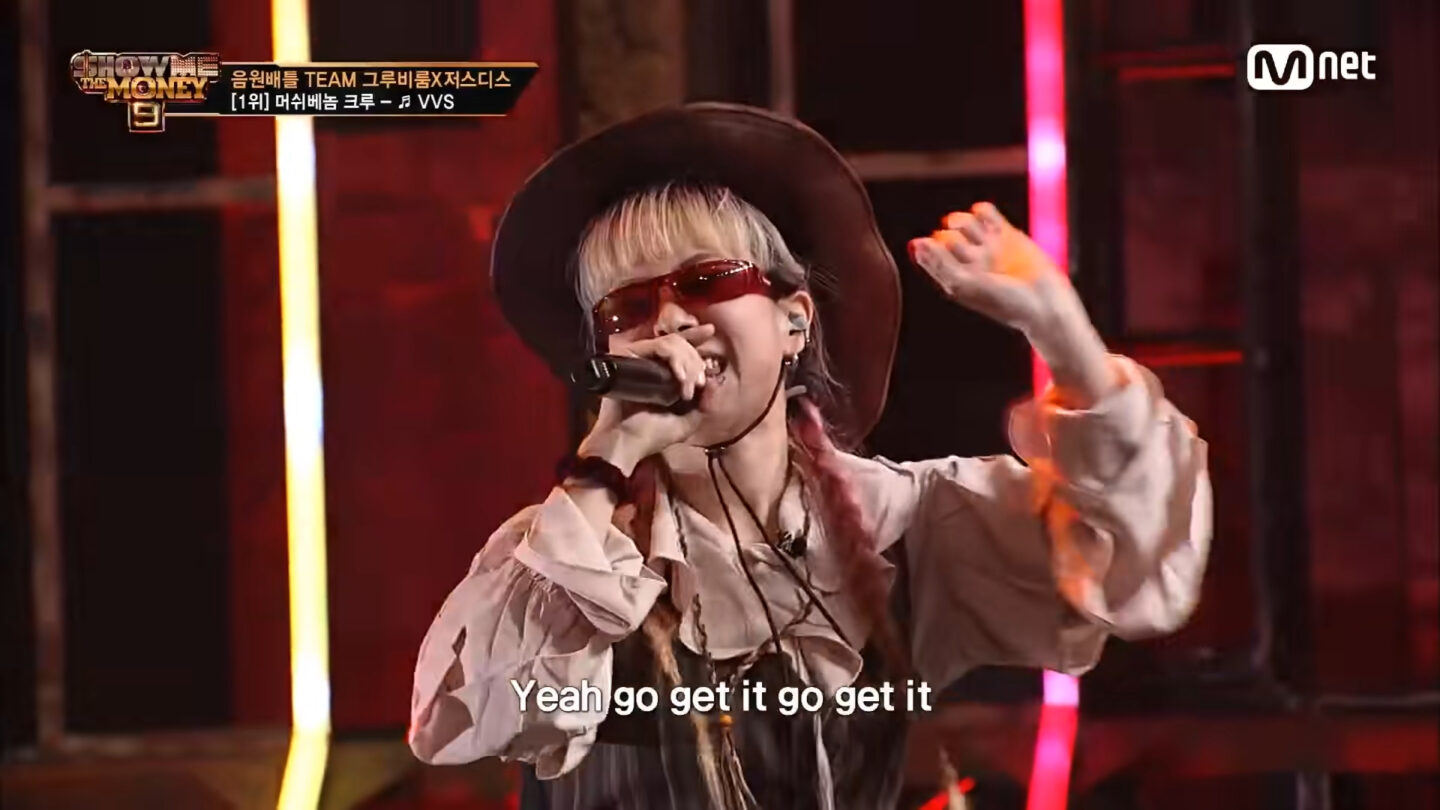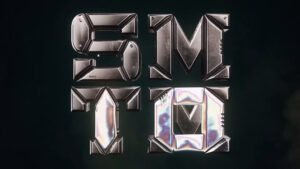
In anticipation of Mnet‘s Show Me the Money 10 coming this year’s Fall, we explore a theme that pops up every now and then in the contestants’ lyrics — family.
The focus on this subject ranges from a casual shoutout to parents to a more personal divulging of one’s stories. And since all the songs are performed in the particular context of a hip-hop survival program, it has also achieved varying purposes (intended or otherwise) such as flexing, adding emotional impact, showing a different side of the contestants, and of course, connecting with the audience through vulnerable stories.
To start off, the stories or punchlines related to their family in some contestants’ lyrics can be so impactful that it becomes synonymous with their image. For example, in Show Me the Money 9, Mirani‘s lyrics in “VVS” give the audience a glimpse at her upbringing in just five concise lines. It starts out with a question directed at her mother, before hinting about their economic struggles by associating her mother’s occupation (pocha refers to a small street stall tent) with being “rock bottom”.
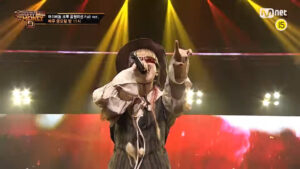
Yet the reassuring and confident tone in the line “Told you I’d take you away from that pocha” shows that this is something left in the past, and presents a zero-to-hero narrative of Mirani. At the same time, she describes her mother’s occupation not as a shameful past, but as something she appreciates for getting her thus far in her life. While the lines share a touching story, at the same time they interestingly play into the theme of the song — VVS, a term in hip hop to describe the highest grades of diamonds. This adds another layer to the story, as it becomes a form of flexing about her filial piety, hard work, and success that has brought her and her family out of poverty.
What did I say mom?
Told you I’d take you away from that pocha
I was a girl on rock bottom
Mom’s bottles of alcohol made me
Hungry? Grit your teeth
Through the song, this story became something iconic to Mirani, and which she briefly re-visits in her later song, “Achoo”.
Another rapper that was closely associated with the stories of his family is Woo Wonjae back in Season 6. His memorable rap in the second round talks about his mother in the middle, “My mom told me: ‘Son, there’s not much to happiness'” to which he immediately responds with, “But mom there’s not much to hell either, if I must explain. All there is are two bags of pills.” With the extremely personal lyrics, viewers are granted the reason behind the darkness and aggressiveness of his rapping style, and insight into him as a person. The direct address to “Mom” also becomes a cry of help while also expressing his perspective and experience of pain — while happiness seems trivial and easily attainable, so is pain.
The topic of family can also be brought in to give emotional impact to rappers’ performances. Mino‘s iconic performance of “Fear” in Season 4 is known by his emotional cry of “abeoji!” to this day. Mino had stuck to a generally aggressive and rough rapping style and lyrics throughout the season and “Fear” showcased a different side of him. While it added a dramatic impact to keep his image novel, it also showed a more personal and vulnerable side of him.
Dad, if you’re looking at me, tell me the answer
I’m too young and soft to become an adult
I still don’t know how
It hurts too much to just crash into things
Now I know, it’s too late to foolishly whip
There are still too many unhealed wounds
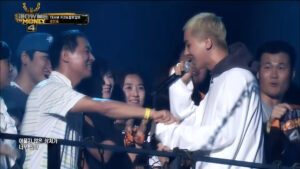
Similar to Wonjae’s lyrics, Mino’s cry to his dad is a cry of help, only more desperate. It underscores his helplessness and his identity as a lost child in relation to his father.
Punchnello‘s song “Sorry” in Season 8 is another example of how the theme of family is used for emotional impact. For a song in the finals, it presented Punchnello in a more sensitive light as compared to his tough songs throughout the season. The song talks about his regrets towards his loved ones, and similar to Mino’s “Fear”, his message to his family shows his vulnerability — “I’ll be back soon Mom, Now I’m an adult”; “I let go of my parents’ hands even in my dreams. I didn’t want to humiliate them So I hid all my life.”
Other than the above songs that have a heavier focus on family, many rappers may mention their families briefly, such as Zene the Zilla‘s brief shoutout in “Guys” (“Mom, I’m on TV like Post Malone”), Kid Milli in “Goals” (“I only care bout money I only care bout feeding my family”), Hanhae in “One Sun” (“It’s my dream to have the Korean name that my dad gave me pass through everyone’s lips”) and Kaogaii in “Head-butt” (“Yes, my mother cleans buildings and my cancer-ridden father is still a laborer”).
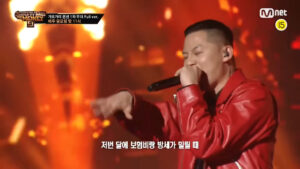
To differing extents, the mention of family presents the rapper in a more personal light. It is usually accompanied by their goals or history, and humanizes them by highlighting their filial piety and presenting them in relation to their parents, in contrast to their tough and individualized image as rappers. Rappers that choose to delve more into the topic can use it to highlight their sensitivity to the audience, to the extent that their image is associated with them being a filial daughter, or struggling son.
At the same time, there is undoubtedly a risk of all this becoming gimmicky, such that rappers use the topic of family to instantly score brownie points with the audience. It will be interesting to see how in Season 10, where the topic will most likely resurface, how rappers can reinvent the topic of family while staying personal and sincere.
(Lyrics via Popgasa [1][2][3][4][5][6], Mnet; Images via Mnet.)
